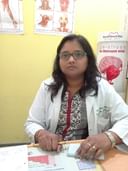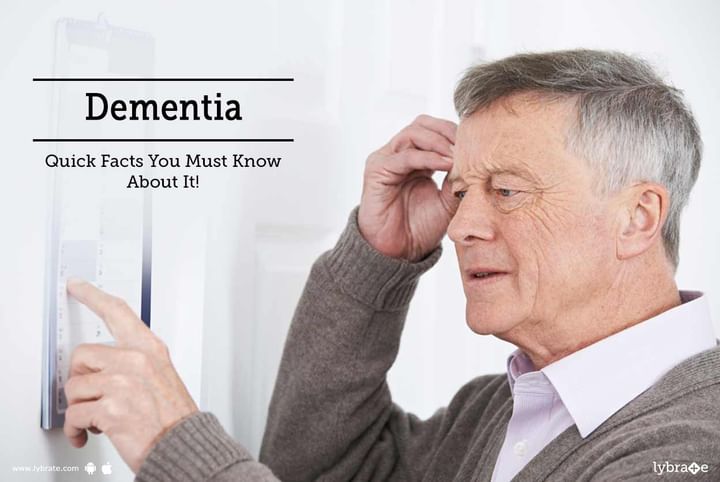Dementia - Quick Facts You Must Know About It!
One of the worst neurological disorders to have is dementia. It is a general term used to describe cognitive decline of the brain. It’s not specific disease but denotes several brain disorders and mental illnesses. A person suffering from dementia can have severe impairment in judgment, loss of memory and thinking. Dementia is a very difficult disease not only for the patient but also for their families and caregivers.
Some facts about dementia are as follows:
- It’s not a mental disorder occurring in old age but it does degenerates with age.
- An estimation of 47.5 million people worldwide suffers from dementia and 60% of these people live in low and middle-income countries and according to WHO this figure is likely to increase.
- Every 4 seconds a new case of dementia is reported
Dementia is a collective term to describe the many types of in people, such as
- Alzheimer’s Disease: It is one of the most common type of dementia accounting for 60-80% of dementia case. People suffering from Alzheimer’s have fewer nerve cells and the size of the brain shrinks.
- Vascular Dementia: Another most common form of dementia occurring after a stroke.
- Lewy Body Dementia: It is neurodegenerative condition that involves a protein called alpha-synuclein which changes the brain. Symptoms may be similar to Parkinson’s disease.
Symptoms of dementia can range from mild to moderate to severe that includes:
- Memory Loss
- Disorientation meaning inability to focus or pay attention
- Changes in visual perception
- Impairment in reasoning and judgment
Dementia can be caused by damage to brain cells or progressive brain cell death. As a result communication between brain cells become difficult. Other symptoms include:
- Stroke
- Brain Tumor
- Head Injury
- Prion Disease
- HIV Infection
Reversible Factors
- There are no definite tests for dementia. Doctors and neurologists have to medical history, blood tests and CT scans to find out whether a person has dementia or not. However, the most potent evaluation comes from a set of questions that are asked to a patient suspected of having dementia. The ability to answer those questions correctly is one of the best diagnoses for dementia.
- There is no specific treatment for dementia as it is not a curable disease and degenerates with time. However, medicines or drugs given for Alzheimer’s can be given to people suffering from dementia.
- Although results vary depending upon a person’s lifestyle’s and habits, doctors suggest eating healthy, exercising regularly, and stopping smoking and drinking may prevent some types of dementia.
- The best treatment for dementia is to treat the person with care and love so that they don’t feel neglected.
Dementia is often associated with old age but that is not always true. It is important to gain knowledge and educate others also.



+1.svg)
